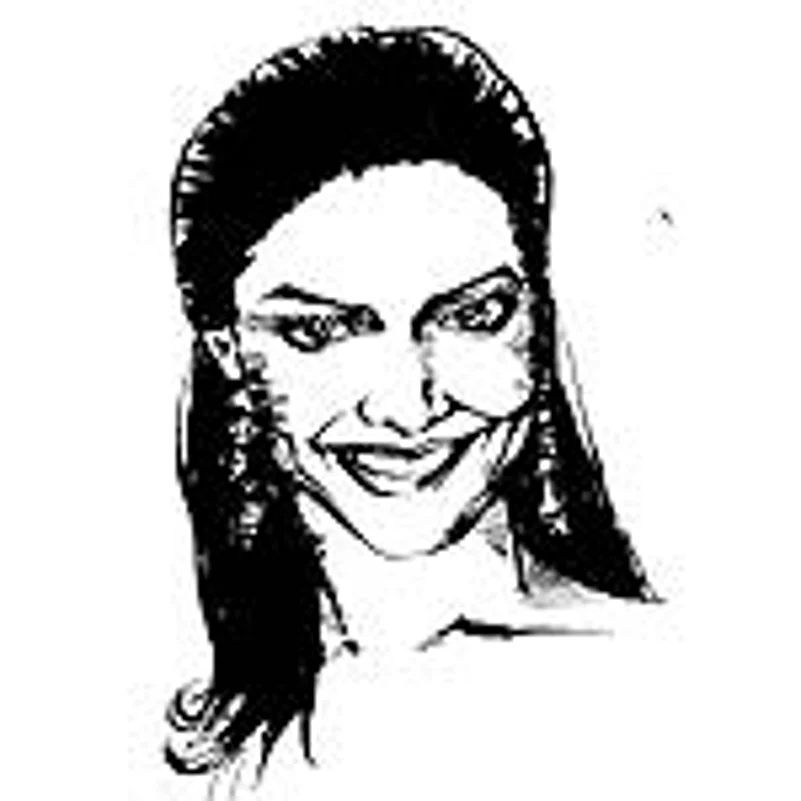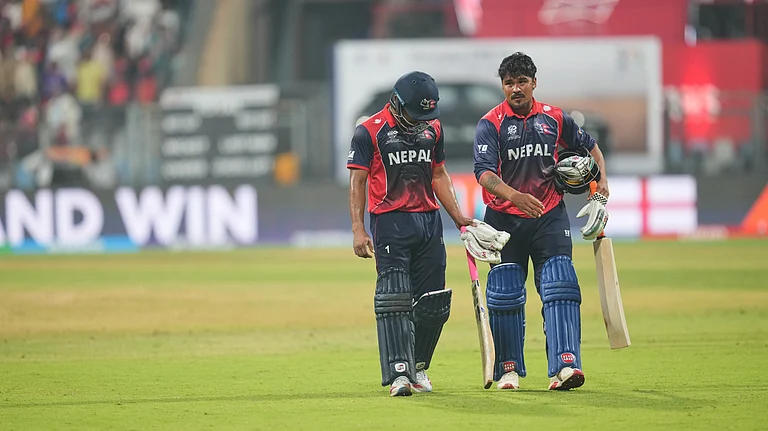
Prime Minister of India
Sikhs, Swamis, Students and Spies: The India Lobby in the United States, 1900-1946
Harold A. Gould
In the Line of Fire: A Memoir
Pervez Musharraf
A Call to Honour: In Service of Resurgent India
Jaswant Singh
The Last Mughal: The Fall of a Dynasty, Delhi, 1857
William Dalrymple
I have not been able to read even one book from cover to cover. But I have managed to read some sections of the following: Gould’s Sikhs, Swamis, Students and Spies. This is a very readable and well-researched account of the India lobby in the US during the pre-Independence era. I also read two memoirs. One was Gen Pervez Musharraf’s In the Line of Fire and the other Jaswant Singh’s A Call to Honour. I am now dipping into William Dalrymple’s The Last Mughal.

A.P.J. Abdul Kalam
President of India
Zero: The Biography of a Dangerous Idea
Charles Seife
In Spite of the Gods: The Strange Rise of Modern India
Edward Luce
Imam Ghazali’s Ihya Ulum-id-din
Maulana Fazlul Karim
The books that cheered me in 2006 all had a different way of thinking. Seife’s Zero originated in the east and energised the world of science. This beautiful book highlights that "the Universe begins and ends with zero". I was astonished to know how Zero led to the dynamics of various societies and created convergence in Western society and then to great civilisations. Luce’s In Spite of the Gods is full of the experiences of the author in India. The chapter, The Triangular Dance, is very thought-provoking. The triangular dance refers to India, the US and China. Another message is: in the world, a competitive nation will emerge, based on economic, developmental and environmental protection. Ihya Ulum-id-din inspired me. I realised how great human life defeats Shaitan (Devil) in all its forms. The Imam’s devotion to the Almighty is a great weapon that sets Shaitan trembling. A great lesson is that righteousness of the mind creates beauty of character.

Sonia Gandhi
Congress president
Pradip Krishen
My Name is Red
Orhan Pamuk
Istanbul
Orhan Pamuk
Iran Awakening
Shirin Ebadi
Trees of Delhi is my favourite book this year, so beautifully brought out. I love trees and for many years I myself wanted to put together a book of trees, which I could never do. I enjoy books set in a historical context, especially if they have an interesting twist in the plot. Pamuk’s My Name is Red also appealed to me because of my interest in art restoration. His Istanbul is an absorbing memoir which mixes descriptions of the reality of a city that I remember well from my visit there several years ago. Ebadi’s book appealed to me greatly, as the memoir of a woman of courage and conviction, battling injustice and inequality.

Gursharan Kaur
First Lady
Home
Manju Kapur
Diddi: My Mother’s Voice
Ira Pande
On Balance: An Autobiography
Leila Seth
I enjoy reading books by Indian women writers. Ira Pande’s Diddi is not really a new book but I enjoyed reading it this year. Seth’s autobiography is a beautifully written memoir of the former chief justice that I only got to read this year.

Salman Rushdie
Writer
In terms of fiction, I’ve been taking a complete break by reading and re-reading several great Japanese authors: Yasunari Kawabata (The Key, House of the Sleeping Beauties and Other Stories, Beauty and Sadness), Junichiro Tanizaki (The Makioka Sisters), Kobo Abe, Kenzaburo Oe...

Shashi Tharoor
Writer
Identity and Violence: The Illusion of Destiny
Amartya Sen
The Ruling Caste
David Gilmour
The Indian Masters
Bill Ricquier
A year spent campaigning for UN’s Secretary General didn’t leave me much time for reading. But Sen’s book is among the three I’d rate as my top reads for 2006. It’s an eloquent and compelling argument for recognising the multiplicity of each individual’s identities, and against the reduction of human beings to one narrow identity in opposition to others. Gilmour’s is a dense and impressive new book on the civil administrators of Victoria’s Indian Empire. A bit too uncritical for the Indian reader, but overflows with a wealth of fascinating material. A cricket fanatic’s essays on the greatest Indian cricketers, Ricquier is sparkling, sometimes contentious, often witty.

Shyam Benegal
Filmmaker
The Last Mughal
William Dalrymple
Zanzibar Chest
Aidan Hartley
The Great War for Civilisation: The Conquest of the Middle East
Robert Fisk
The Inheritance of Loss
Kiran Desai
Dalrymple’s is a marvellous account of the events of 1857. It is a thoroughly researched and beautifully told story. I also enjoyed the books of war correspondents Hartley and Fisk. Hartley has brilliantly covered most of the horrible wars in Africa in the last decade while Fisk’s is a fascinating account of the oil wars right from WorldWar I to contemporary times. Desai’s Booker-winning work is indeed very well-written but I found it depressing—it’s somehow lacking in hope.

Aruna Roy
Activist
In the Name of Honor: A Memoir
Mukhtar Mai
This book made a deep impression on me because of her inspiring struggle against the odds. It reminded me very much of other heroic women in India.

Amitav Ghosh
Writer
Moby Dick
Herman Melville
Ramachandra Guha Omnibus
Affective Communities
Leela Gandhi
I re-read Moby Dick this summer and was more than ever persuaded of its surpassing genius: it is proof that no one has ever understood as Melville did the madness of which his nation is capable. The Ramachandra Guha Omnibus provided a welcome occasion to revisit his pioneering early work, and to be amazed, yet again, by its scale, its humanity and its near-prophetic foreshadowings of the environmental crisis that grips the world today. I am now eagerly awaiting his forthcoming India After Gandhi: The History of the World’s Largest Democracy. It is sure to cause a sensation in 2007. Leela Gandhi’s wonderful new book was a great discovery. An account of transcultural friendships, it tells many surprising and poignant stories, including one about Oscar Wilde and Manmohan Ghose, who was Sri Aurobindo’s brother and a professor of English at Patna. We hear so much about xenophobia and so little about xenophilia: yet, Leela Gandhi persuaded me that the love of strangers is an important part of India’s cultureand heritage. Why else would we sing so often of ‘balam pardesis’?

Abhishek Bachchan
Actor
Lights, Camera, Masala: Making Movies in Mumbai
Sheena Sippy & Naman Ramachandran
This is a very interesting coffee-table book on Hindi cinema. It is very reader-friendly, full of pop-up elements and fantastic portraits. I like the approach they’ve taken with the book—how to make a Hindi film. The whole journey, what goes into the making, the various departments. I think it would be helpful to those who want to understand what makes a Hindi movie, but it’s also enjoyable reading for those who work in the business. I liked the section at the end where all the new-age directors have explained their approach and their experience of making their first films.

A.R. Rahman
Composer
Ihya Ulum-id-din
Imam Ghazali
This is the one book I go back to again and again, whenever I’m confused or in need of inspiration. Otherwise, I don’t get to read at all even though I travel so much. I am so sleep-deprived that I end up catching up on my sleep rather than my reading whenever I’m on a plane.

William Dalrymple
Writer
The Inheritance of Loss
Kiran Desai
In Spite of the Gods
Edward Luce
Lucknow: City of Illusion
Edited by Rosie L. Jones
Among the Indian books I read this year, I hugely enjoyed Kiran Desai’s witty and well-observed novel. Luce’s is a marvellously clear, insightful, affectionate and balanced analysis of India’s rise. Lucknow is the most visually spectacular Indian book this year. It’s one of the most lavishly produced and beautifully printed photographic books ever published on the architecture of India. The book uses the work of early photographers such as Felice Beato to record the fabulously baroque architecture of Lucknow, most of which was wantonly destroyed by the vengeful Victorians in the aftermath of another catastrophic clash between East and West, the Indian Mutiny of 1857.

Rahul Bose
Actor
The Mahabharata: A Modern Rendering
Ramesh Menon
The Complete Works of the Adventures of Feluda
Satyajit Ray
Ramesh Menon’s Mahabharata is an elegant, well-written tale of the most complex of Indian epics that is engrossing and informative. What I like most about it is its focus on relationships and a fine evocation of the forces of destiny. Satyajit Ray’s work is absolutely delightful. The manner in which he negotiates the tight boundaries of writing a detective tale for children without sex and violence is effortless and imaginative at the same time. His wry sense of humour and his opinions on all things ranging from train travel in India to the chaos of the Hindi film industry through the voice of Feluda leaves you with a smile on your face.

Girish Karnad
Playwright
Harum Scarum Saar and Other Short Stories
Bama
This collection of 10 short stories about Dalit life in Tamil Nadu left a lasting impression among the books I read this year.

Saif Ali Khan
Actor
The Satanic Verses
Salman Rushdie
Island of the Day Before
Umberto Eco
I came across Rushdie’s book only this year and loved his imagination, his descriptive power and the massive canvas of the book. It was a metaphoric treat. Eco and Rushdie, I think, are quite alike in many ways. Both bring along a wealth of knowledge, a sense of history and culture into their works. It’s all effortlessly woven into the descriptions. As a result, their work is both enriching as well as entertaining.

Meghnad Desai
Economist
The Diaries of Mahadev Desai 23 vols
The Transformation of Chinese Socialism
Chun Lin
These 23 volumes in Gujarati are amazing—a mix of daily diary of life with the Mahatma, records of his speeches and letters, anecdotes, accounts of the books he and the Mahatma had read. It is a classic. Chun writes of a China unlike the triumphalist globaliser’s China and puts up a feisty defence of the Chinese notion of people’s democracy. It is a book I much disagreed with but also found very stimulating.

Sabyasachi Mukherjee
Fashion Designer
M.A. Jinnah
Muhammad R. Kazimi
The Last Mughal
William Dalrymple
The Argumentative Indian
Amartya Sen
Kazimi’s book is a window into the changing intellectual climate in our inscrutable neighbour, Pakistan, and a generational shift in the attitude to their Father of the Nation. We all read Dalrymple since it is most readable and just right for us, the unread middle classes. Sen’s Argumentative Indian is not this year’s release but still controversial in that it flatters Indians and ignores the old Indian tradition of ignoble acquiescence—a stance which Sen continues to defend in our continuing argumentation.

Deepika Padukone
Model
Shantaram
Gregory David Roberts
I am enjoying this book very much, especially because I am not from Mumbai and the picture he paints of Mumbai, particularly Colaba, makes you feel you’ve been there.

Kiran Desai
Booker winner
What books have I read this year? Much older books than anything published last year, I’m afraid.
Amartya Sen
Nobel laureate
I wish I had more time and freedom in my life (to choose my favourite reads). Readers pay, rightly, much attention (to this list) and it should not be done casually.


























